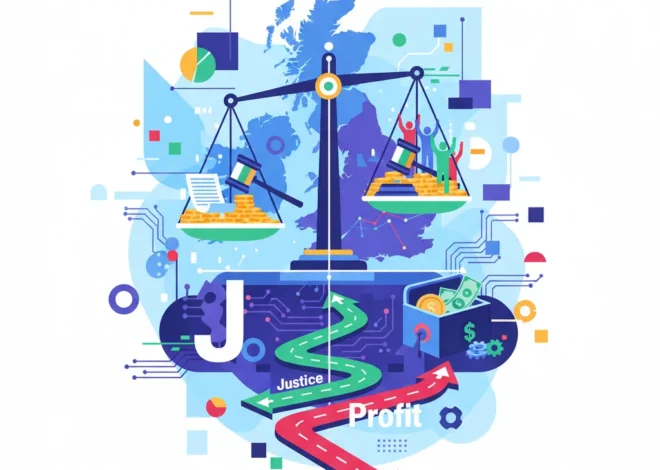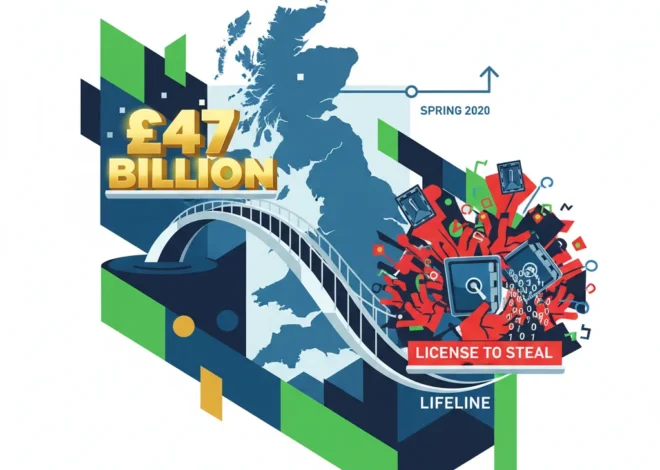
The UK’s Stealth Wealth Tax: Why a Council Tax Shake-Up on Expensive Homes is on the Horizon
A significant shift in UK fiscal policy may be quietly gathering momentum, with the crosshairs settling firmly on the nation’s most valuable properties. According to recent reports, Labour’s Shadow Chancellor, Rachel Reeves, is considering a strategic tax manoeuvre ahead of the next Budget—one that avoids the politically explosive “mansion tax” label while achieving a similar goal. The plan involves creating new, higher council tax bands for expensive homes in England, a move described as the “least worst option” for raising substantial revenue without triggering widespread public backlash.
For investors, finance professionals, and homeowners, this isn’t just a minor tweak to local government funding. It’s a signal of a potential pivot in how the UK approaches property wealth taxation. This blog post will dissect this proposal, explore the archaic foundations of the current council tax system, analyze the economic and market implications, and consider what it means for the future of finance and investing in the UK.
The Broken Foundation: Why Council Tax is a Relic of the Past
To understand the significance of the proposed changes, one must first grasp the fundamentally flawed nature of the current council tax system. Introduced in 1993 to replace the deeply unpopular Poll Tax, council tax was based on property valuations conducted in April 1991. This is not a typo. The tax paid by nearly every household in England is based on a snapshot of the property market from over three decades ago.
The result is a system riddled with bizarre and inequitable distortions. A modest terraced house in a London borough that has seen meteoric price growth might be in the same tax band as a sprawling detached home in a region where prices have stagnated. The system fails to capture the massive shifts in wealth and property value that have reshaped the UK economy. According to the Office for National Statistics, the average UK house price in April 1991 was around £58,000; today, it’s closer to £285,000, with prices in London having increased more than tenfold in some areas.
The current bands in England are as follows:
| Council Tax Band | Property Value in April 1991 |
|---|---|
| A | Up to £40,000 |
| B | Over £40,000 and up to £52,000 |
| C | Over £52,000 and up to £68,000 |
| D | Over £68,000 and up to £88,000 |
| E | Over £88,000 and up to £120,000 |
| F | Over £120,000 and up to £160,000 |
| G | Over £160,000 and up to £320,000 |
| H | Over £320,000 |
The crucial point is Band H. Any property worth more than £320,000 in 1991 falls into this top band. This means a £350,000 home from that era pays the same council tax as a £15 million mega-mansion in Kensington. This regressive structure is at the heart of the debate and is the primary target for reform.
The Proposed Solution: A “Mansion Tax by Stealth”
The proposal reportedly being considered by Rachel Reeves is an elegant, if imperfect, political solution. Instead of a nationwide revaluation—a politically terrifying prospect that would create millions of “losers” whose bills would rise overnight—the plan is to simply add new bands (e.g., I, J, K) at the top of the scale.
This approach would only affect properties currently valued in the millions, a small and politically acceptable target group. It allows a future government to claim it is making the system fairer and raising taxes on the wealthiest without alarming the majority of homeowners. It’s a form of fiscal surgery with a laser, not a sledgehammer.
This move is designed to inject billions into the public purse, particularly to shore up struggling local authorities who are at the front line of delivering public services. The strain on local government finance is immense, with many facing effective bankruptcy. A targeted tax on high-value properties is seen as a direct way to address these shortfalls while also tackling perceptions of wealth inequality.
Economic and Investment Implications: Ripples Across the Market
While the direct impact is on a niche segment of homeowners, the indirect consequences could ripple through the wider economy and investment landscape.
- The Property Market: The most immediate effect would be on the prime and super-prime property market (£2 million+). An additional annual tax of several thousand pounds could slightly cool demand at the top end. This might impact price growth in affluent areas of London and the South East. For property investors and developers focused on luxury real estate, this represents a new holding cost to factor into their financial models.
- The Broader Economy: The macroeconomic impact is likely to be limited. The tax would affect a small number of high-net-worth individuals whose consumption patterns are less sensitive to marginal changes in taxation. However, the revenue raised could have a significant effect if used to prevent cuts to local services, thereby supporting local economies and employment.
- Investing and Wealth Management: For finance professionals, this signals a growing willingness from policymakers to target asset wealth over income. While this proposal is limited to property, it sets a precedent. Investors may start to factor in a higher probability of future wealth taxes when making long-term decisions about asset allocation. The conversation in wealth management may shift towards more tax-efficient ways of holding property assets.
- Banking and Mortgages: The banking sector will be largely unaffected, though high-value mortgage lending could see a marginal dip if the tax deters some buyers at the top of the property ladder. It’s unlikely to have any systemic effect on the banking industry’s stability or profitability.
The Institute for Fiscal Studies has long highlighted the inequities of the current system, and reforms of this nature are broadly seen by economists as a step towards a fairer model. The key will be in the implementation—how high will the new rates be, and at what modern-day property values will the new bands kick in?
60,000 Mortgages at Risk: The Unintended Consequence of a UK Savings Overhaul
Alternatives and the Future of Property Taxation
This targeted reform is just one of several ways to tax property wealth. It’s worth comparing it to the other main alternatives that have been debated for years.
Here is a comparison of potential property tax reforms:
| Reform Option | Pros | Cons |
|---|---|---|
| New Council Tax Bands (The Proposal) | Politically feasible; targets a small group; relatively simple to implement. | Doesn’t fix the underlying issue of outdated 1991 valuations; still a blunt instrument. |
| Annual Mansion Tax (e.g., 1% on homes > £2m) | Directly targets high wealth; potentially raises significant revenue. | Politically toxic; creates issues for “asset-rich, cash-poor” owners; administratively complex. |
| Full Revaluation & Proportional Tax | The fairest and most economically efficient option; creates a direct link between value and tax. | Politically explosive; creates millions of winners and losers overnight; requires huge administrative effort. |
Looking further ahead, the evolution of financial technology (Fintech) could render this entire debate obsolete. The reason we rely on 1991 valuations is the sheer difficulty and expense of mass revaluations. However, the world of FinTech and “PropTech” (Property Technology) offers new solutions. AI-powered automated valuation models (AVMs), which are already used extensively in the mortgage industry, could provide real-time, accurate valuations for every property in the country. Leveraging big data and machine learning could enable a dynamic, fair, and responsive property tax system.
Imagine a future where property tax is adjusted annually based on an AI-driven valuation, with the tax rate set as a small percentage of the current value. This would be far more equitable and would eliminate the “cliff edges” of the current banding system. While the technology is largely there, the political will to implement such a transparent system remains the biggest hurdle.
The Polymath Investor: Decoding the Modern Economy Like a Crossword Puzzle
Conclusion: An Inevitable Step in a Longer Journey
The potential introduction of higher council tax bands by a future Labour government is more than just a minor policy adjustment. It is a significant, if cautious, step towards modernizing the UK’s archaic approach to property taxation. It reflects a political calculation that the public appetite for taxing high levels of property wealth is growing, especially when it is used to fund essential local services.
For those in the world of finance, economics, and investing, this is a trend to watch closely. It represents a pragmatic compromise, a “stealth wealth tax” that achieves its aim without the political fireworks of a more explicit mansion tax. While it doesn’t solve the fundamental problems of the council tax system, it patches the most glaring hole. This move could be the first of many as governments of all stripes are forced to confront the difficult question of how to tax wealth in an economy where asset values have far outpaced wage growth.


